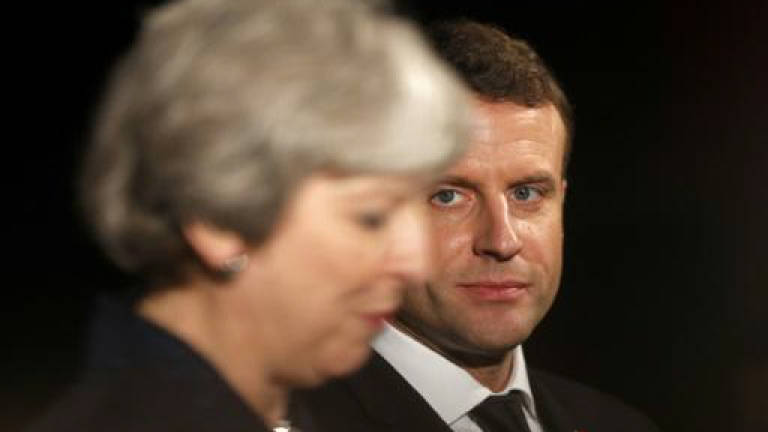EU foreign ministers seek to paper over divisions on Syria strikes

LUXEMBOURG, LUXEMBOURG: EU foreign ministers will try to put on a united front at talks in Luxembourg on Monday despite divisions over the strikes on Syria and how to handle the growing diplomatic crisis with Moscow.
Germany's powerful Chancellor Angela Merkel may have declared the strikes by the US, Britain and France "necessary and appropriate", but other EU members are resisting any step that could lead to further escalation.
US, French and British missiles destroyed suspected chemical weapons development and storage sites in Syria on Saturday in response to the alleged chemical attack in Douma, blamed on the regime of President Bashar al-Assad.
While the EU's 28 members agree the incident was unacceptable and cannot go unpunished, a statement issued by EU diplomatic chief Federica Mogherini on Saturday stopped short of endorsing the strikes, saying only that those responsible "will be held accountable for this violation of international law".
NATO chief Jens Stoltenberg unequivocally backed the strikes, saying they would reduce Assad's ability to use chemical weapons.
But EU states are divided — at one end of the scale are France and Britain, at the other are neutral countries and in between various NATO members with differing views on strikes.
"The statement of the 28 is the maximum that could be said," a European source said.
Some European governments are holding back because they are concerned about the reaction from Russia, which among other things remains a key supplier of gas to the EU.
The day before the strikes Russian President Vladimir Putin warned during phone talks with his French counterpart Emmanuel Macron against "ill-considered and dangerous actions" in Syria which could lead to "unpredictable consequences".
Stick together
"The EU has to stick together, we have to avoid each country pursuing its own individual policy with Moscow," a European official said on condition of anonymity.
Moscow has been keen to exploit fissures within the EU that were laid bare by the response to the poisoning of former Russian spy Sergei Skripal and his daughter in England.
After intense lobbying by Britain, France and Germany, all 28 EU leaders signed up to a statement blaming Russia for the poisoning at a summit in Brussels last week, but it took a lot of persuading.
Afterwards, 19 EU countries followed Britain's lead and expelled Russian diplomats from their territory, five took the more limited step of recalling their own ambassadors, and three did nothing.
"Everyone saw the same thing. Everyone had the same reading of the facts, but not everyone responded in the same way," an EU diplomat said.
At Monday's meeting in Luxembourg, EU foreign ministers will discuss how to put pressure on Moscow to try to end the seven-year conflict in Syria.
"We must increase pressure on Russia to force it to change attitude. Everyone knows there is only a solution to the conflict in Syria with Russia," German Foreign Minister Heiko Maas said on Friday.
French Foreign Minister Jean-Yves Le Drian said Paris was ready to work to "combine our efforts to promote a political process in Syria that favours an end to the crisis", while his boss Macron said on Sunday he wanted to "convince" the Russians to come to the negotiating table.
The EU insists "there can be no military solution" to the war in Syria, which has killed over 350,000 people, and has pushed for UN-led peace talks in Geneva to be given fresh impetus.
But privately some European diplomats already acknowledge that the Assad regime's military campaign is likely to succeed and they should begin planning for the next stage. — AFP